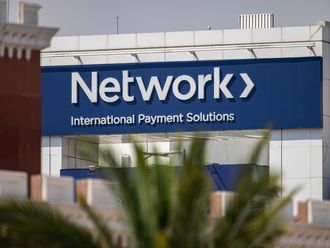Dubai: While a vibrant market for Sukuk issuance is leading more issuers to tap the Islamic financial markets, there may be a number of clear benefits to owning Sukuk—not only for Shariah-compliant investors and financial institutions, but also sophisticated mainstream investors around the world. This growing diversification is a key advantage. For Shariah-compliant investors, we believe Sukuk could potentially be a basic building block for portfolio asset allocation, complementing already-prevalent equity and real-estate holdings.
Sukuk offer non Sharia-compliant investors an opportunity to further broaden existing core global fixed income allocations. Because some of these fixed income instruments are backed by a real asset such as real estate or infrastructure projects and the payments are derived from profit sharing or rental income, they also tend to be more insulated from market events and have lower correlations to other asset classes, including global bonds, global equity and commodities.
From a geographical perspective, Sukuk offer exposure to areas of the market that may not be captured in more traditional fixed income indexes, such as the GCC and Southeast Asia—two areas where credit ratings are currently relatively strong and economies have been expanding at a rapid clip. In the GCC, for instance, issuers backing these bonds have tended to be of high credit quality with strong balance sheets. As a result, the credit risk profile has tended to be lower than high-yield debt, for example. As the market continues to grow and more companies and sovereigns begin to tap the Islamic finance markets, we anticipate these global and sector diversification benefits should likely increase.
While we see interest in Sukuk broadening out globally as the instruments become more mainstream, the fact remains that Islamic financial institutions and wealthy Muslims are still the biggest buyers of Sukuk because they have few other investment alternatives. As such, they view Sukuk as sound long-term investments that, in many cases, they fully intend to hold to maturity. Furthermore, Islamic financial institutions’ generally strong capital positions also reduce any need to sell these instruments in times of market tumult. Western bond investors, in contrast, can hold a broad range of fixed income securities and can shift out of different asset classes as the perceived market environment changes. With a large base of natural investors who have few investment alternatives and are unlikely to sell their holdings before maturity, Sukuk offer conventional investors some downside protection in times of market volatility, in our view.
Sukuk may also gain further traction among investors in a rising interest-rate environment. While the major central banks have been pumping liquidity into the global economy in order to boost economic growth following the global financial crisis, the US Federal Reserve (Fed) and the Bank of England may be getting closer to actually raising rates. When interest rates rise, bond prices tend to fall. However, the impact depends on what is known as a bond’s duration, or its sensitivity to interest-rate risk. The higher the duration, the more a change in interest rates will impact a bond’s price. Here, we believe Sukuk offer a potential advantage. Typically, Sukuk portfolios offer a lower duration (and thus less interest-rate sensitivity) than major fixed income indexes.
Indeed, when talk of an end to the Fed’s quantitative easing programme first surfaced in early 2013, Sukuk held up better than both US Treasuries and emerging-market debt.
The writer is the Chief Investment Officer, Franklin Templeton Global Sukuk and Mena Fixed Income Strategies.












